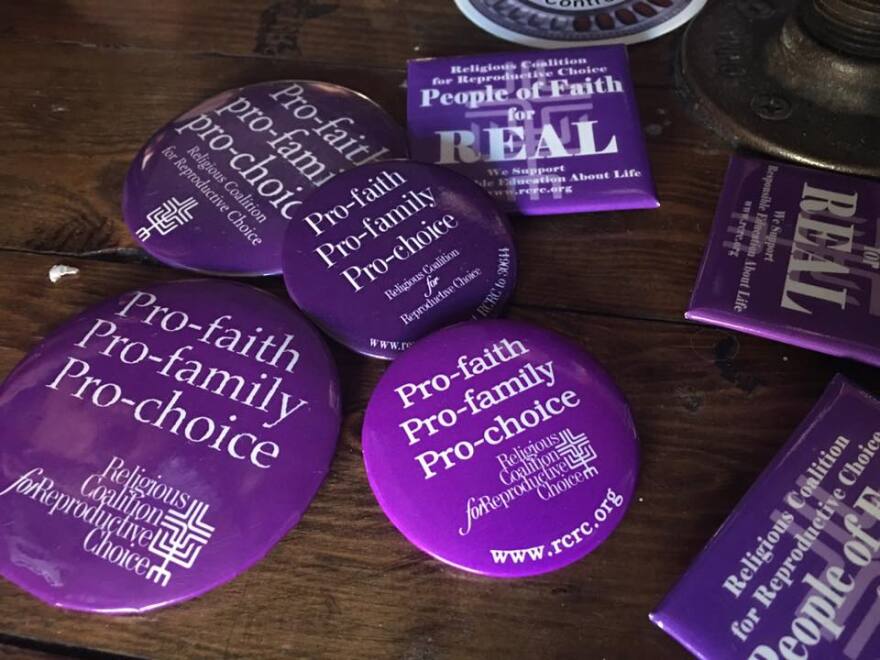The Roe Fund, an arm of the Oklahoma Religious Coalition for Reproductive Choice, is a Tulsa-based nonprofit that provides direct financial assistance to Oklahomans seeking abortions. Board member Kurt Gwartney spoke with Public Radio Tulsa's Chris Polansky about what they do, the state of reproductive rights in Oklahoma, and how those intersect.
---
PUBLIC RADIO TULSA: I was hoping you could start by just giving us a sort of overview of the Roe Fund and what it is you do.
KURT GWARTNEY: Well, the Roe Fund is part of a national organization that started out as the Religious Coalition for Reproductive Choice, and we did learn over the years that providing support for women, especially those who have trouble affording abortion services, providing direct funding for them was something that we were really the only people doing in Oklahoma.
There's also a national network of abortion funds that we're affiliated with that provides assistance sometimes, and also guidance, in helping people find abortions, especially in places like Oklahoma and in many other states where it's kind of an abortion services desert, where there just aren't that many providers.
PRT: Tell us a little bit about the people who you're helping. You know, what are their stories, how do they end up coming to you, and then kind of walk us through the process once you connect.
GWARTNEY: Oh, my goodness. Like so many things, there are so many stories and they're all different. One thing that we have discovered is that, unlike what might be considered a stereotype -- especially in movies, and in books, even -- the way that people seeking abortion are represented doesn't really meet the facts on the ground.
Many of the people that we help already have children. Some of them are seeking an abortion because adding another child into their family would put the whole family at risk economically. We also have women who come to us because there is a medical condition that they are concerned about, that carrying a birth to term could affect their own life or even the life of the fetus.
So we find women across the spectrum, you know, seeking help, and it's always the stories that we hear and the notes we get from women who have used our services and then write us thanking us are just heartbreaking and heart-touching, because when they needed help the most we were able to be there with a few dollars -- a few hundred dollars, because abortion is also expensive -- and without the direct assistance of us and others, they just wouldn't be able to access that service.
PRT: I'd like to ask you, what do you see when you look at the legislative climate in Oklahoma right now, concerning reproductive rights? And how does that tie into the work you all do?
GWARTNEY: Well, the legislature's work on reproductive rights is basically to eliminate reproductive rights, in my opinion. Repeatedly, the Oklahoma state legislature has spent the time and energy on bills that over and over and over again have been found to be unconstitutional. I've sat in courtrooms as these cases have made their way through the system, and seen the time and money effort that some of our state lawmakers put into trying to keep people from exercising their constitutional reproductive rights.
And it's interesting that this just, it seems to get worse every year. And of course now, with the shift in the U.S. Supreme Court, toward a more 6-3, conservative-leaning court, it seems like that it's even gotten worse. That the bills that are being presented anticipate, at some level, an overturning of Roe v. Wade, which was the landmark Supreme Court decision 48 years ago, and then to, so when that's overturned, abortion would be outlawed in Oklahoma. That's their goal.
PRT: We saw this happen in Arkansas -- and we just have a little bit of time left -- the governor of Arkansas seems prepared to take this through the courts, take his chances there. How worried do you think Oklahomans should be that Gov. Stitt might sign something similar pretty soon? We have about 30 seconds.
GWARTNEY: I think Oklahomans should be very worried that this constitutional right could go away. We've said that for several years. And, you know, every person has the nonnegotiable human right to determine whether, when and how to create a family, and that could go away in Oklahoma.
PRT: Any last words? You've got about 10 seconds, Kurt.
GWARTNEY: What Roe Fund does is help women exercise their right to choose, and we think that's an important right all across the board.






